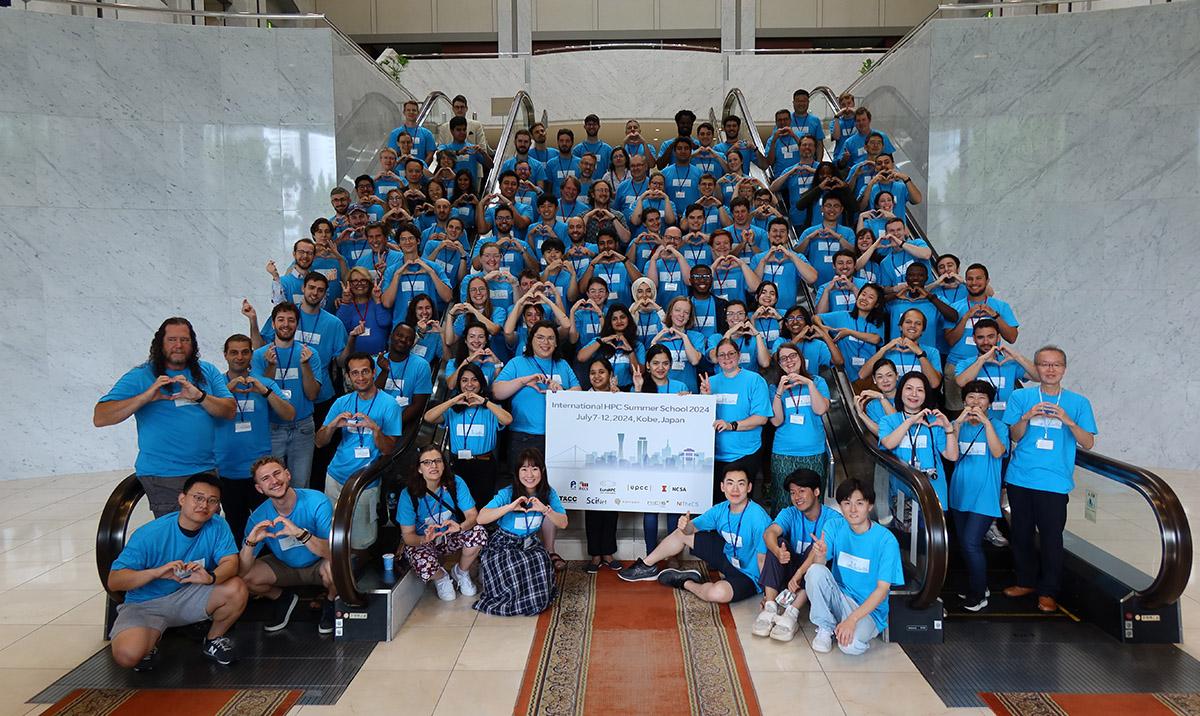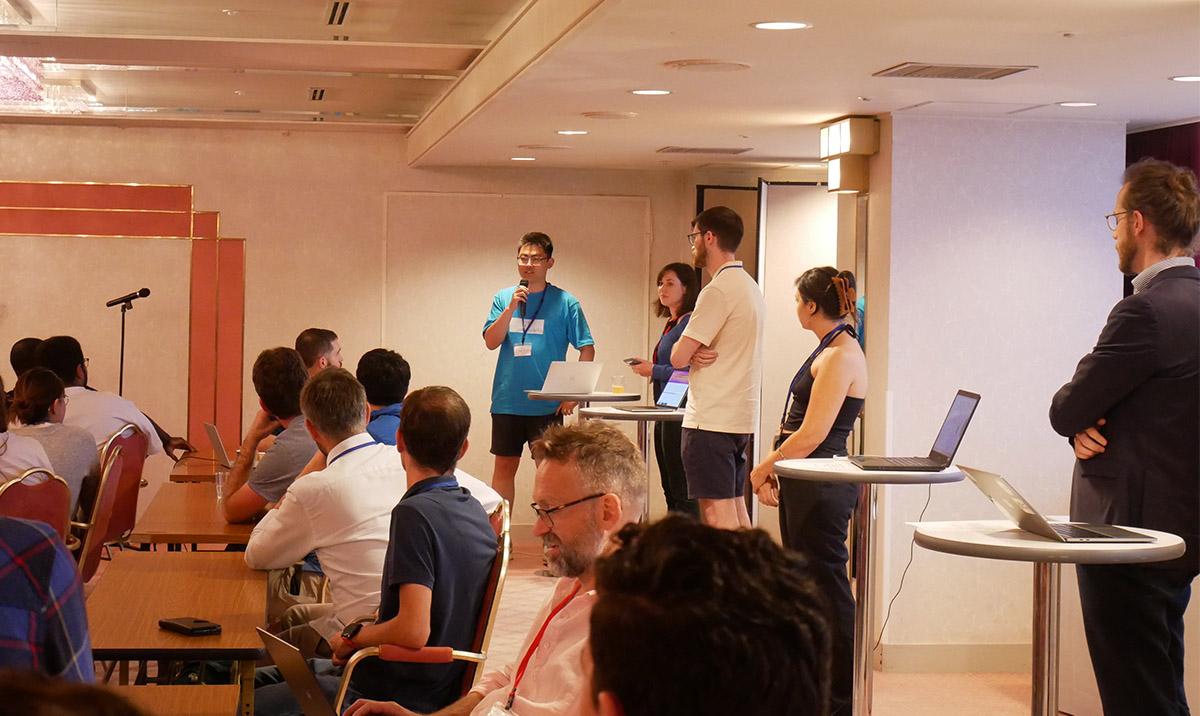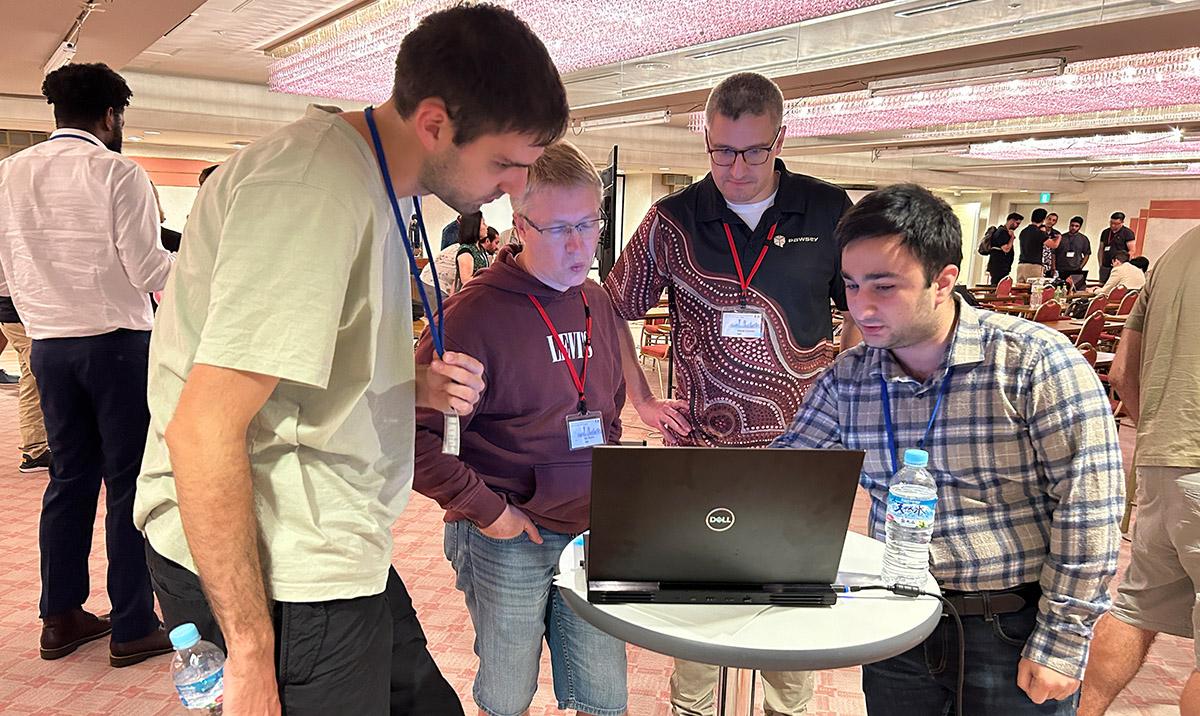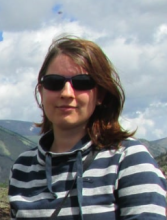EPCC at the International HPC Summer School 2024
27 August 2024
In July EPCC staff members Weronika Filinger and Ludovic Capelli, and EPCC PhD students David Kacs, Hovhannes Minasyan and Xingran Ruan attended the International HPC Summer School in Kobe, Japan. This training event brought together students and staff from Australia, Canada, Japan, EU, UK, USA and South Africa.

The International HPC Summer School (IHPCSS) started in 2010 as a collaboration between EU and US projects (DEISA and TeraGrid, respectively) and grew significantly over the years. EPCC has been involved from the very beginning through EU projects, playing an important role in the organisation and delivery of the event. Recent changes to funding mean EPCC is now an independent organising member, funding the participation of the UK and Edinburgh students.
The Summer School consists of a mixture of technical lectures accompanied by hands-on sessions, technical panels, mentoring sessions, student poster sessions and social activities. The detailed agenda can be found on the event’s website. This year EPCC’s contributions to the programme included Weronika Filinger running the mentoring programme and Ludovic Capelli teaching the GPU programming track and organising the programming challenge. This year the event attended 82 students, 25 staff members and 7 returning mentors. The event was hosted and locally supported by Riken.
Technical content
The goal of the technical content is to familiarise the students doing research in computational sciences with HPC tools and techniques and Big Data Analytics. This year the covered topics included shared and distributed memory programming on both CPUs and GPUs, performance analysis and optimisation, software engineering, parallel I/O, Python for HPC, numerical libraries, scientific visualisations, containers, workflow tools and Big Data and Machine Learning. Most sessions had a hands-on component run on the Bridges 2 system located at the Pittsburgh Supercomputing Centre.
Additionally, students had the opportunity to present their research during the poster sessions. They were each asked to prepare a one-minute lightning talk, followed by one hour of the usual poster session mingling. The students were split into four groups and spent two evenings engaging with each other and learning about their peers' work. They were encouraged to interact with as many people as possible - to practise asking and answering questions and interacting with audiences with different scientific backgrounds. For many of them, HPC is the only common ground. Staff members also participate in those sessions, and provide feedback and support.
The programming challenge is a friendly competition but non-competitive participation is also possible. It is an optional activity that allows students to work in small groups and apply the skills they have gained during the first part of the week to optimise and tune a small application. This year Ludovic carefully crafted a badly-performing PageRank algorithm, giving students plenty of scope to optimise and parallelise it. There were two categories, CPU and GPU, and the codes performing the largest number of interactions in 60 seconds won.

Above: EPCC PhD student Xingran Ruan during his lightning talk.
Mentoring programme
The mentoring programme at IHPCSS is unique. It focuses on non-technical mentorship, including career guidance, inter-personal skills and overall well-being (eg work-life balance, dealing with difficult situations or people, working remotely).
Each staff mentor is assigned two to three students weeks before the event starts to facilitate more personal and in-depth mentoring experience during the Summer School. The matching is done using the stable-matching algorithm based on the answer provided in a mentoring survey. Students are encouraged to interact with as many mentors and other mentees as possible throughout the event - both during the scheduled sessions and free time. This year the official mentoring sessions consisted of: introduction to mentoring sessions on Sunday, career paths and goal setting sessions on Monday, one-on-one sessions with the assigned mentor on Wednesday, resource fair on Thursday and career breakouts on Friday.
The Career Paths session highlighted and discussed different career options within the HPC community, and included career talks from the returning mentors. The Returning Mentor programme brings back former student attendees to share their career path since attending IHPCSS.
During the Resource Fair each staff member selected a single topic they were happy to discuss with the students (eg work-life balance, networking, grant writing, starting a family, moving to a new country, two-body problem, transitioning to industry, working at an HPC centre, dealing with difficult people and so on). Over 30 topics were covered and the students were encouraged to walk around the room and engage in conversations they were interested in. The session also offered access to flyers and other resources covering a range of discussed topics.
The Career Session had four themes this year: interview tips, CV and résumé review, networking and elevator pitch, and presentation skills. Each theme consisted of a short introduction and practical exercises or discussions, and allowed students to practise the relevant skills in a small group setting.
To learn more about the ethos and evolution of the mentoring programme over the last fourteen years or the key elements IHPCSS uses to establish a sense of community and belonging see these papers, which were recently published in the PEARC’24 proceedings:

Above: EPCC student Hovhannes Minasyan discussing his research during one of the poster sessions.
Social events
The last component of the Summer School are the social events. The attendees don’t have much free time at the beginning of the week, with the welcoming reception on Sunday night, and poster sessions on Monday and Tuesday nights. However, in the last two editions of the event, the Wednesday after 4pm was free for the students to rest or explore the local area.
This year the students organised several different trips in Kobe, and to Osaka and Kyoto. On Thursday evening there was a social event organised in the Rokkosan Silence resort situated on the top of Mountain Rokko above Kobe. Another attraction was a visit to the Riken computing facility, including a tour of Fugaku, which is currently the fourth largest supercomputer in the world.
Overall, this year's IHPCSS’24 was another very successful event. The event’s evaluation team is now analysing the feedback gathered during and after the Summer School to provide a set of recommendations for the future editions. IHPCSS’25 will be held in Europe, and the planning meetings will re-start at the end of August. EPCC hopes to continue contributing to the event.
Further information
International HPC Summer School
https://www.ihpcss.org

